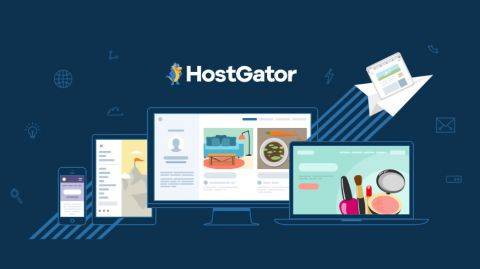Once again, we see a huge step for HostGator. The company recently announced that all their shared hosting packages will include an extra Let’s Encrypt SSL, making it an even better deal for their clients. It became so important for website owners to have an SSL that they are going to buy the package anyway, so why not merge it with the web hosting packages? HostGator did it, and it was a great idea.

In this article regarding HostGator’s Free SSL (Secure Sockets Layer) certificates will cover the following topics:
- Why a Website Needs an SSL
- Free SSL Certificate
- Step by Step Guide for Enabling your Free SSL
Why a Website Needs an SSL
If your website requires someone to enter their personal information, credit card, or login credentials, you will want to secure your website. When the site is secure, it will encrypt the data sent across the internet. This encryption prevents the man-in-the-middle attacks used by hackers to steal your customers’ information while in transit.
There are two steps needed to secure a website. One, you will need to get an SSL certificate for the domain and two, the site will need to be forced to use the SSL. This means that instead of going to HTTP, the site will automatically use HTTPS and encrypt information that is sent across the web. It is essential that you configure the website to enable or force the domain to use the SSL certificate.
Free SSL Certificate
Taking advantage of HostGator’s Free SSL is easy. The Free SSL certificate will automatically be added to every domain for new and existing cPanel platform customers. Enabling (or forcing) the SSL certificate will give your domain an “https://” prefix, which ensures your website will be labeled as “secure” in most web browsers. We have added the Free SSL to the cPanel accounts so that our customers can benefit from an SSL on their domain(s).
There are many advantages to having a secure connection on your website. With the update to Chrome’s browser interface, there is a visible padlock displayed in the address bar to indicate if a site is using HTTPS instead of HTTP. To have the ‘green’ padlock bar show, you will need to upgrade to the EV SSL Certificate. View our blog article regarding Chrome browser changes to see all that Chrome is doing to encourage site owners to use HTTPS.
Search engines do take into consideration if a website uses an SSL certificate to which it can benefit a site’s ranking. Visitors to a website also pay attention if a website is secure or not. Typically a visitor to a site will feel more secure in providing personal information or purchasing products when they see the padlock associated with an SSL certificate.
The Free SSL lasts for 90 days from issuance and renews automatically at no cost to you so your site hosted with HostGator should never be without an SSL.
If you do have an existing paid SSL certificate installed, it will not be affected and will remain active. Any expired paid SSL certificates will automatically convert to the Free SSL certificate if the domain has not opted-out.
New customers will be able to add or opt-out of the Free SSL upon account sign-up.
Note: The Free SSL will not come with any warranty or site logo. For these features, the Free SSL must be upgraded to a Positive or EV SSL Certificate. For more information regarding the different types of SSL certificates please see the article below:
Step by Step Guide for Enabling your Free SSL Certificate
If you have a website hosted and pointed to a HostGator package, your SSL should be ready to use and can proceed to the next step to direct your customers from HTTP to HTTPS. If another provider manages your domain name, you will need to ensure that an A record has been created for your domain via your domain provider’s dashboard. That domain needs to be associated with your HostGator package to enable the Free SSL certificate for it. Otherwise, you will be unable to use the Free SSL.
The Free SSL does not automatically force HTTPS onto the domain and will need to be manually updated. This can be completed by updating the .htaccess to force HTTPS on every page. Forcing your site to use the SSL via HTTPS will ensure that information sent through the website will be encrypted. This information may be a customer’s contact information, credit card, login, etc. Please see the following links for more information on how to complete this:
To enable HTTPS on your WordPress installation HostGator recommends using either of the following plugins:
For more information regarding HTTPS and WordPress please refer to the following article:
As always your opinions and feedback is important for us because you are the one who makes our post more valuable and worth reading. If you run into any issues, be sure to let me know in the comments below. I will do my best to try and help walk you through it.
AAJAY BHARADWAJ
Aajay is a blogging addict, WordPress fanatic, and a staff writer for catchmypage.com.

Leave a Reply